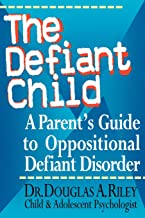Oppositional Defiant Disorder
Cluster Number:
Wiki Number: PW145
Diagnosis: Oppositional Defiant Disorder
US Patients: 3.3% of children
World Patients:
Sex Ratio: B1.4+;G
Age Onset: Boys before age 8; Girls after puberty
Brain Area: where aggression responds to emotion-provoking stimuli; amygdala, prefrotnal cortex, anterior cingulate and insula
Symptoms: pattern of angry, defiant behaviors in children and adolescents, but usually not aggressive, destructive, deceitful, nor thieves.
Progression: behaviors are usually against an authority figure, a parent or teacher.
Causes: 50+% hereditary; growing up in poverty with exposures to violence; parents coping poorly with neglect or abuse,
Medications: mood stabilizers, antipsychotics, and stimulants
Therapies: child-focused problem-solving strategies, self-monitoring skills, parental skills’ training may help.

